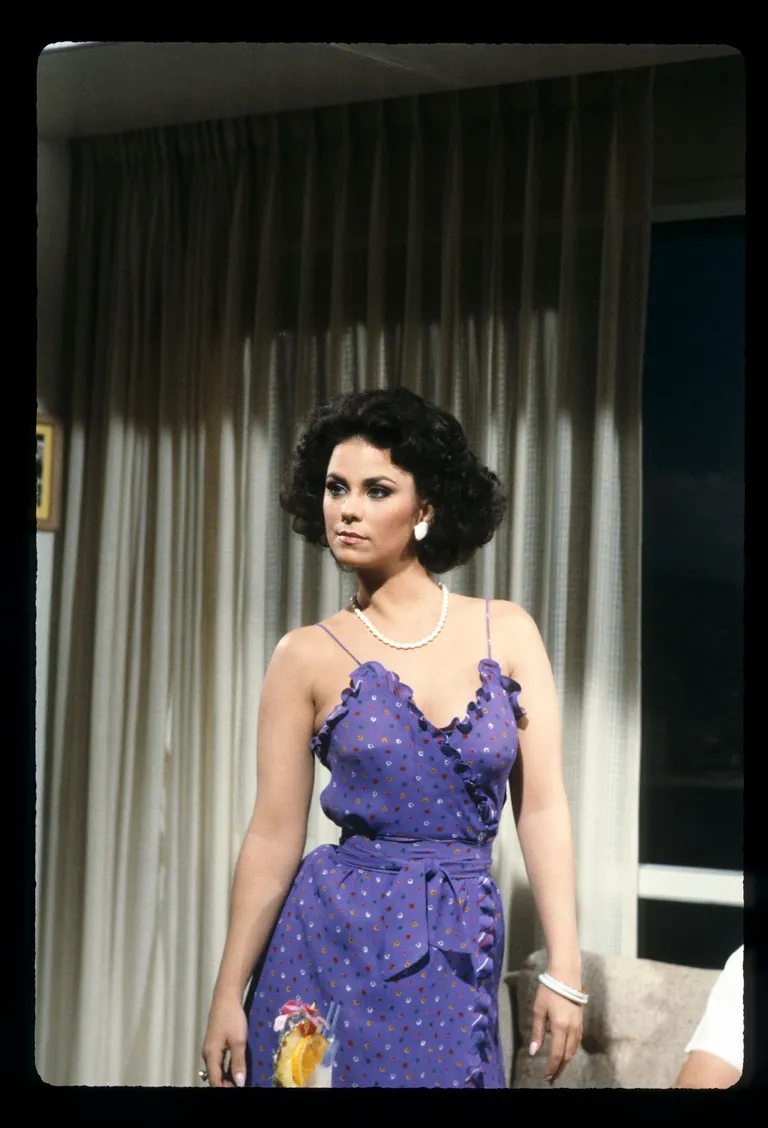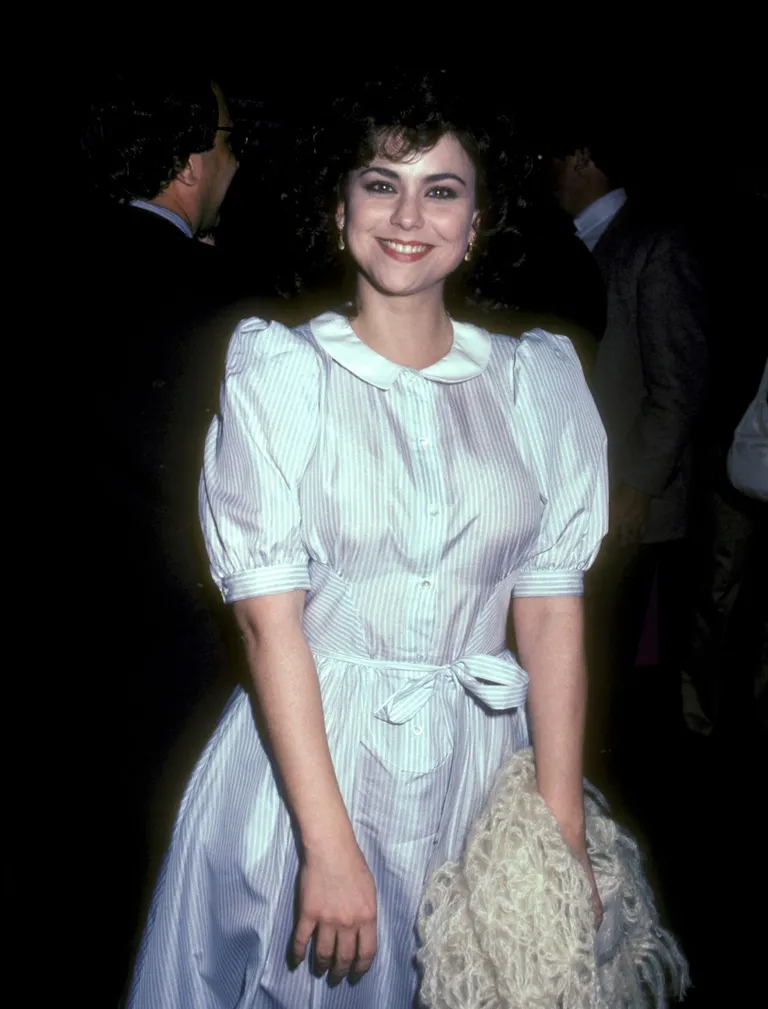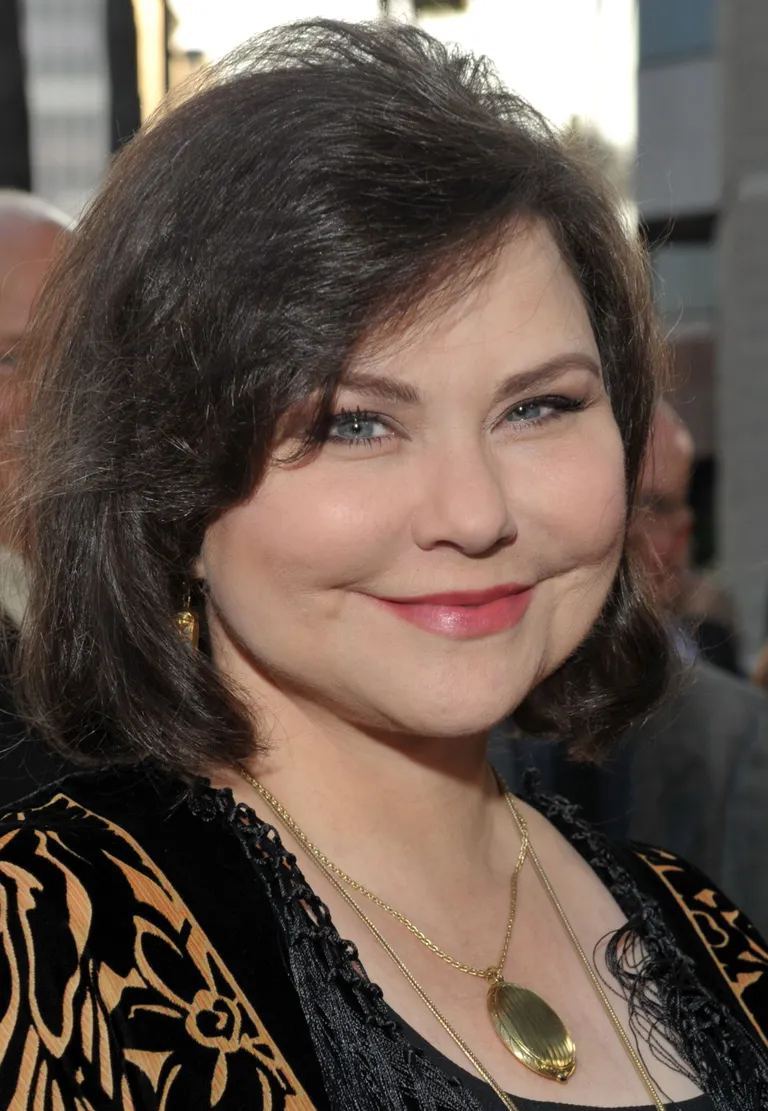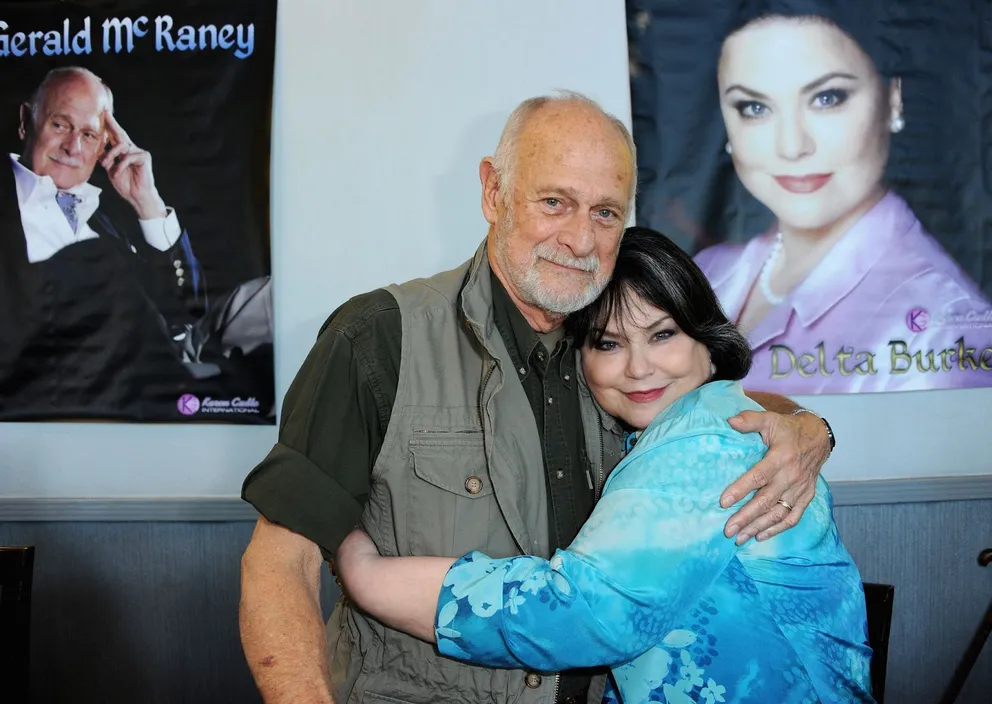She was one of the most adored faces of the 1980s, captivating audiences with her wit and charm, yet her meteoric rise came with a steep cost. Vilified by the media for her weight and haunted by personal struggles, this beloved actress stepped away from the spotlight. But in the shadows of heartbreak and loss, she discovered a love so steadfast it would redefine her life.
The Rise of a Star
In the mid-1980s, she burst onto the scene as Suzanne Sugarbaker, the glamorous, sharp-tongued southern belle in the hit sitcom Designing Women. Her comedic brilliance and undeniable screen presence catapulted her into the hearts of viewers across America. For a time, it seemed like her career was unstoppable.

Behind the scenes, however, the pressures of stardom began to unravel her. A lifelong battle with depression intensified under Hollywood’s unrelenting expectations. “I’d retreat into my apartment for days, paralyzed by this dark cloud I couldn’t shake,” she later admitted.
Despite her personal challenges, she continued to shine in her role, but her weight gain soon became fodder for tabloids. Cruel headlines mocked her appearance, branding her with demeaning nicknames. “I was being publicly humiliated for simply existing in a body that didn’t fit their standards,” she reflected.
The Breaking Point
The relentless media scrutiny, coupled with her inner struggles, took a devastating toll. Panic attacks became frequent, leaving her trembling and unable to work. Her co-star Dixie Carter often stayed by her side during these episodes, offering comfort and reassurance.
The actress eventually approached Designing Women creator Linda Bloodworth-Thomason with an idea to address her weight gain directly through her character. This led to the groundbreaking episode They Shoot Fat Women, Don’t They?, where Suzanne Sugarbaker confronts the harsh realities of body image and societal judgment. The episode resonated deeply with audiences and critics alike, earning her an Emmy nomination and a standing ovation from the live audience.

But despite the success, tensions behind the scenes escalated, and in 1991, she was abruptly let go from the show. The dismissal left her feeling betrayed and abandoned. “It was as if Hollywood had turned its back on me,” she said.
Finding Solace in Love
Amid the turmoil, one constant remained: the unwavering support of her husband, Gerald McRaney. The two met in 1987 when McRaney guest-starred as Suzanne’s ex-husband on Designing Women. Their on-screen chemistry quickly blossomed into a real-life romance. By their second date, McRaney proposed. “I knew I couldn’t let her slip away,” he later confessed.
The couple married in 1989, and from the beginning, McRaney proved to be her rock. When the media mocked her weight, he fiercely defended her. “I didn’t care about her size; I loved the person she was,” he said.
During her darkest moments, his unwavering support became her lifeline. “There was a night when I didn’t want to go on,” she revealed. “I called him, and he came to find me, no questions asked. He saved me.”
Reinvention and Resilience
After her departure from Hollywood, the actress and McRaney relocated to New Orleans, seeking a fresh start. There, she focused on rediscovering herself, launching a clothing line for plus-size women and authoring her memoir, Delta Style: Eve Wasn’t a Size 6 and Neither Am I.
However, life continued to throw challenges her way. In 1997, she faced a series of personal losses, including the death of her grandmother and her mother’s battle with cancer. That same year, she was diagnosed with Type 2 diabetes. Determined to take control of her health, she adopted a healthier lifestyle, stabilizing her weight and regaining her confidence.

Through it all, McRaney remained by her side, offering encouragement and love. “He’s loved me at my lowest, when I couldn’t even love myself,” she said.
A Love That Stood the Test of Time
The couple’s bond grew stronger with each passing year, rooted in mutual respect and a shared sense of humor. In 2017, when McRaney won an Emmy for his role in This Is Us, he dedicated the moment to her. “At the end of every day, I come home to her—that’s my real reward,” he said.
Reflecting on their relationship, McRaney once shared, “Love isn’t about perfection. It’s about embracing each other’s imperfections and finding joy in them.”
A Life Reclaimed
Now in her later years, the actress has stepped away from the spotlight but continues to make occasional appearances in television and film. Her role in Dolly Parton’s Heartstrings reminded audiences of the talent that first captured their hearts decades ago.

Looking back, she sees her journey as one of growth and resilience. “I’ve weathered storms I thought would break me, but I’ve come out stronger on the other side,” she said. “And through it all, I’ve had the love of a man who never gave up on me.”
Her story is a testament to the power of love and self-acceptance, reminding us that even in the face of life’s harshest challenges, it’s possible to find light and rebuild. Today, she embraces the life she’s created, filled with joy, love, and the unshakable bond of a 35-year marriage that proved love can conquer all.




